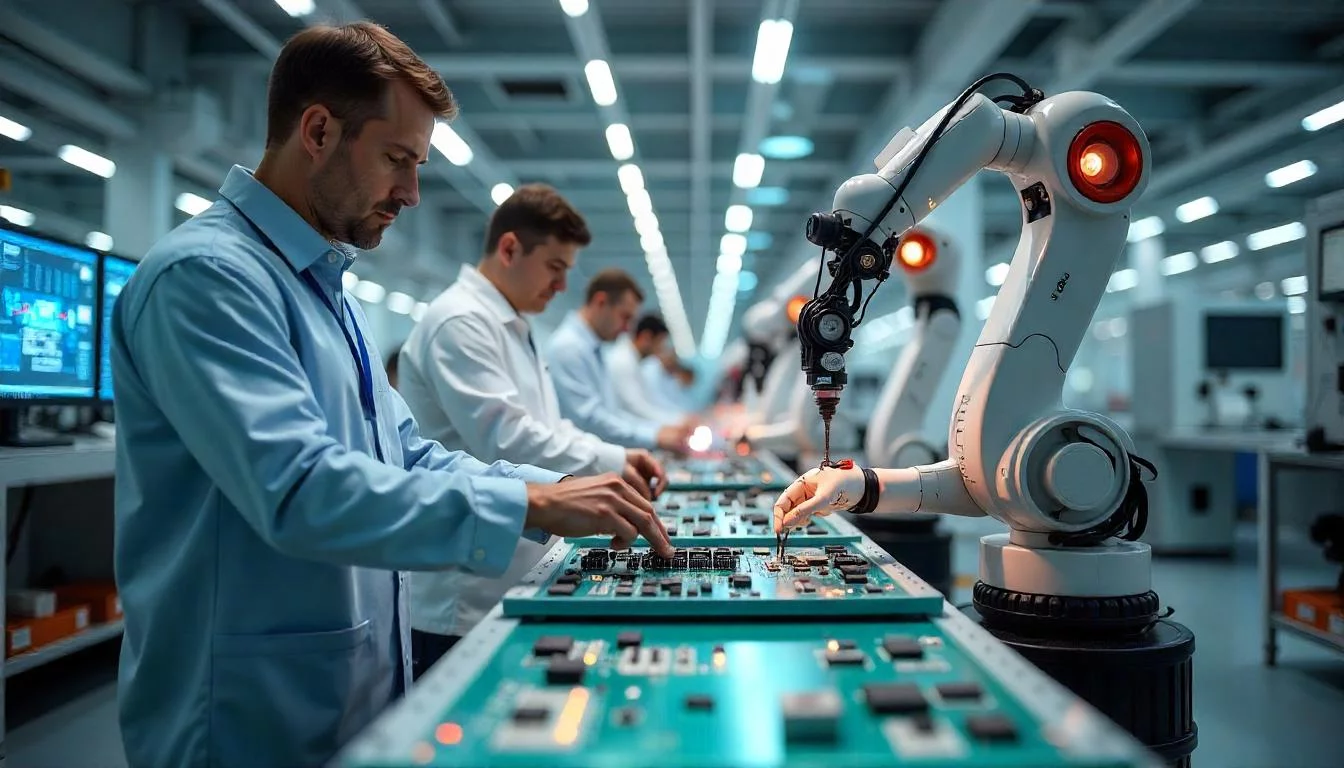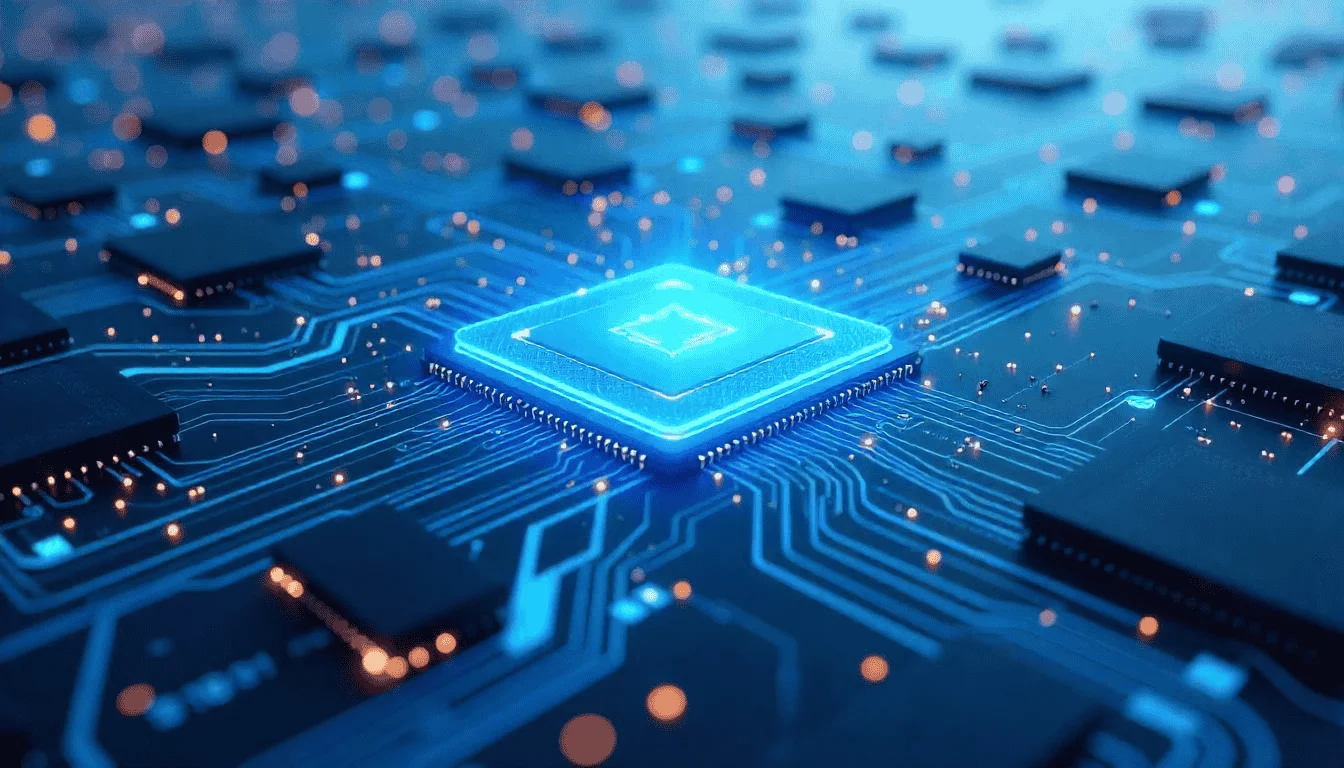Artificial Intelligence (AI) has come a long way since its inception, and in the year 2024, it continues to shape the world as we know it. What began as a concept in science fiction has now become an integral part of our daily lives. AI is no longer just a distant dream; it is a reality that has revolutionized industries across the board. We will explore the basics of AI, how it works, its impact on various industries, and the incredible opportunities it presents for the future.
Artificial Intelligence and How it Works
At its core, Artificial Intelligence refers to the simulation of human intelligence in machines, enabling them to perform tasks that would typically require human cognitive abilities. AI systems are designed to learn from data, recognize patterns, and make decisions with minimal human intervention.
The two primary forms of AI are Narrow AI (Weak AI) and General AI (Strong AI). Narrow AI is designed to perform specific tasks, such as voice assistants like Siri or recommendation algorithms on streaming platforms like Netflix. On the other hand, General AI aims to possess human-like cognitive abilities and understanding, but it remains a theoretical concept and is yet to be fully realized.
The foundation of AI lies in Machine Learning (ML) and Deep Learning (DL). Machine Learning involves training algorithms on vast amounts of data to make predictions or decisions. Deep Learning, a subset of Machine Learning, uses artificial neural networks to process data and learn complex patterns. The Evolution of AI has made these advancements possible, enabling AI to become more efficient and sophisticated than ever before.
How AI is Transforming Industries
Healthcare
AI is significantly transforming the healthcare industry by enhancing diagnosis accuracy, personalized treatment plans, and drug discovery. Advanced AI algorithms can analyze medical images, such as X-rays and MRIs, with remarkable precision, aiding in early detection of diseases. AI-driven chatbots and virtual assistants have also improved patient engagement and provided accessible healthcare information.
Finance
In the financial sector, AI has revolutionized fraud detection, credit scoring, and risk management. AI-powered trading algorithms have improved investment strategies and optimized portfolio management. Moreover, customer service in banking and insurance companies has been streamlined with the integration of AI chatbots.
Manufacturing
AI-driven automation has led to increased efficiency and productivity in manufacturing processes. Robots and AI-powered machines can perform repetitive tasks with precision and consistency, reducing human errors and operational costs. Predictive maintenance through AI analytics has also minimized downtime and equipment failures.
Transportation
The transportation industry is experiencing a significant transformation with the advent of autonomous vehicles. AI algorithms enable self-driving cars to navigate and make real-time decisions, promising safer roads and reduced traffic congestion. Additionally, AI-driven logistics optimize supply chain management and reduce delivery timeframes.
Marketing and Advertising
AI has revolutionized marketing and advertising by analyzing consumer behavior and preferences. Personalized recommendations, targeted ads, and chatbots for customer support have enhanced the overall customer experience, leading to increased brand loyalty and conversion rates.
Education
AI is revolutionizing the education industry, elevating learning to new heights of personalization, efficiency, and effectiveness.
- Personalized Learning: Through the power of AI, students now have access to personalized learning paths tailored to their individual needs and learning styles.
- Intelligent Tutoring Systems: AI-driven tutoring systems offer personalized feedback and support, functioning as virtual tutors that guide students through their learning journey.
- Adaptive Assessments: With AI’s capabilities, assessments can now adapt to each student’s level of understanding, providing targeted feedback and valuable recommendations for improvement.
- Natural Language Processing: AI-driven chatbots have become invaluable resources for students, offering assistance with queries, assignments, and assessments with remarkable efficiency.
Opportunities of AI
The evolution of AI has created an array of opportunities for individuals and businesses alike:
Career Opportunities: As AI continues to expand, the demand for AI specialists, data scientists, machine learning engineers, and AI ethicists has skyrocketed. Pursuing a career in AI-related fields offers numerous possibilities and a chance to shape the future of technology.
Entrepreneurship: AI presents fertile ground for innovative entrepreneurs to develop cutting-edge solutions and disruptive products. Startups that harness the potential of AI stand a chance to revolutionize industries and gain a competitive edge.
Ethical AI Development: The ethical implications of AI have become a major concern. Opportunities exist for professionals to work on ensuring AI technologies are developed and implemented responsibly, with fairness, transparency, and accountability in mind.
In 2024, Artificial Intelligence has become an indispensable force, driving transformative changes across diverse industries. From healthcare to finance, manufacturing to transportation, AI is revolutionizing the way we live, work, and interact. Embracing the potential of AI opens a world of opportunities, and as technology continues to evolve, it is crucial to strike a balance between innovation and ethical considerations. As we step into the future, the responsible development and deployment of AI will be the key to unlocking its full potential for the betterment of society.
Let’s Build Digital Excellence Together










